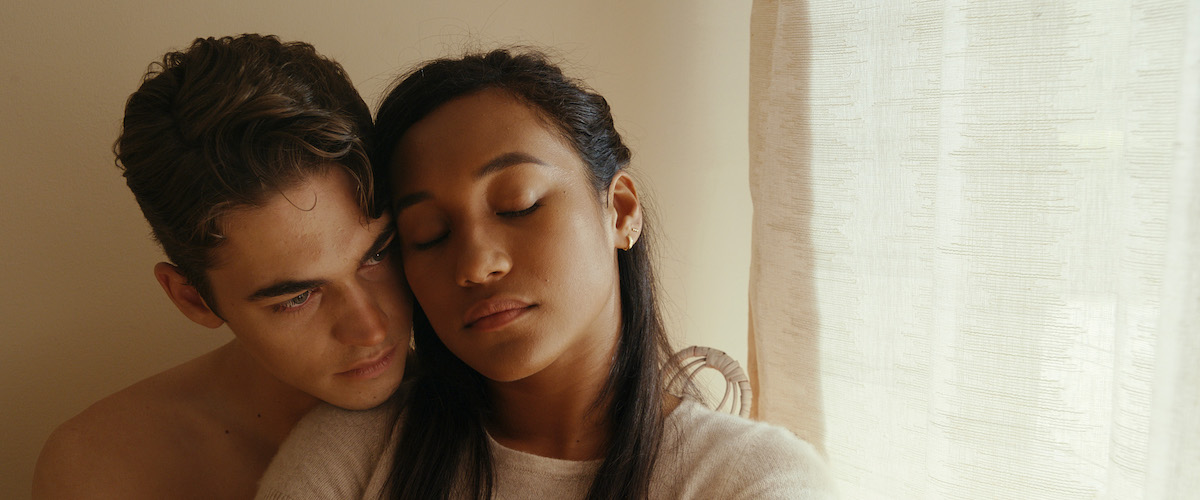“First Love” is an earnest but unremarkable romance wrapped around an intelligent and sometimes powerful story of the destruction that capitalism inflicts on middle-class American families.
“First Love” is written and directed by A.J. Edwards, a protege of visionary spiritualist Terrence Malick who has made two films in a Malickian vein (“The Better Angels” and “Age Out”), but this third effort is more of a straightforward ensemble drama. Set in the aftermath of the financial collapse of late 2008 during George Bush’s second term, it follows one American family, the Albrights, as they try to survive and readjust to drastically reduced economic prospects. The father, Glenn, gets laid off from the financial sector and seems unable to accept that he might never again have a job as prominent as the one that was taken from him. His wife Kay (“Better Angels” costar Diane Kruger, who coproduced here) eventually offers to take a second job and runs headlong into the barrier of her husband’s pride.
The dialogue that articulates the Albright’s tight situation is often bland and oversimplified, but it’s still a (pleasant) shock to see an American feature film dealing with the financial collapse in something other then genre-based metaphors (as, for example, the excellent crime thriller “Killing Them Softly” did).
When Kay goes to the bank to try to get a loan, the bank officer looks at her application and wants to know if her husband is sick, and if not, why he isn’t working. “Even a minimum-wage job would look better on the record than things are now,” he says.
We later learn that friends and family members have largely abandoned the Albrights in their time of distress. There’s a paranoid intimation that people have stopped answering their phone calls because they don’t want to hear about their suffering or risk being asked for money. When the priest at their church says, “Where is the pleasure in life that is unmixed with sorrow?” it sounds less like a balm than a cop-out. “This place is a box,” Glenn grouses after the family moves into a more affordable place.
The big problem with this movie is that it focuses more than half of its running time on a vanilla romance between Glenn and Kay’s teenage son Jim (Hero Fiennes Tiffin, son of director Martha Fiennes and nephew of actors Ralph and Joseph Fiennes) and his classmate Ann (Sydney Park). The film is at its most Malick-like when focusing on the young couple, but not in a good way. Edwards, cinematographer Jeff Bierman, and editor Alec Styborski serve up lyrical montages and dreamy, silent-with-music imagery as if hoping to capture some of the mysterious magic of the central love stories in Malick’s “The New World” and “To the Wonder.”
But there’s no evident substance or complexity to either character, and the beats are so familiar as to seem obligatory (including the mandatory breakup midway through). It often seems as if the filmmaking is trying to add a ballast. Jim and Ann vacuuming up the film’s running time also means that the more grounded and complicated struggles of the parents and their adult relatives and colleagues don’t get the scrutiny they deserve.
And it doesn’t do the movie any favors that the interracial/cross-cultural aspects of the relationship go largely unexplored, save for a brief exchange of Spanish in their first conversation in a school hallway. Nor does the film have much to say about the discrepancy between how the two families live, financial crash or no financial crash, and how the gap between haves and have-nots might be a part of the larger story of the crash.
The untapped potential here is considerable, though the cinematography and performances ensure that the film remains watchable. Kruger and Donovan are particularly effective in closeups where contradictory feelings play across their faces. (Glenn’s smiling-through-the-pain expression as he’s being laid off is perfect: he’s still the model employee, trying to prove that the company was right to have hired him even as they discuss his severance package.) And Diane Venora is smashing in a small role as Kay’s distressed and embittered aunt, who raised Kay after her mother abandoned her but now has to be put into a home because she’s no longer capable of living by herself. This is a good movie with stirring passages that suffers mainly from a lack of self-knowledge. It concentrates on things we’ve seen a million times when it could have focused on things that American movies never have the guts to show us.
Now on VOD.




















